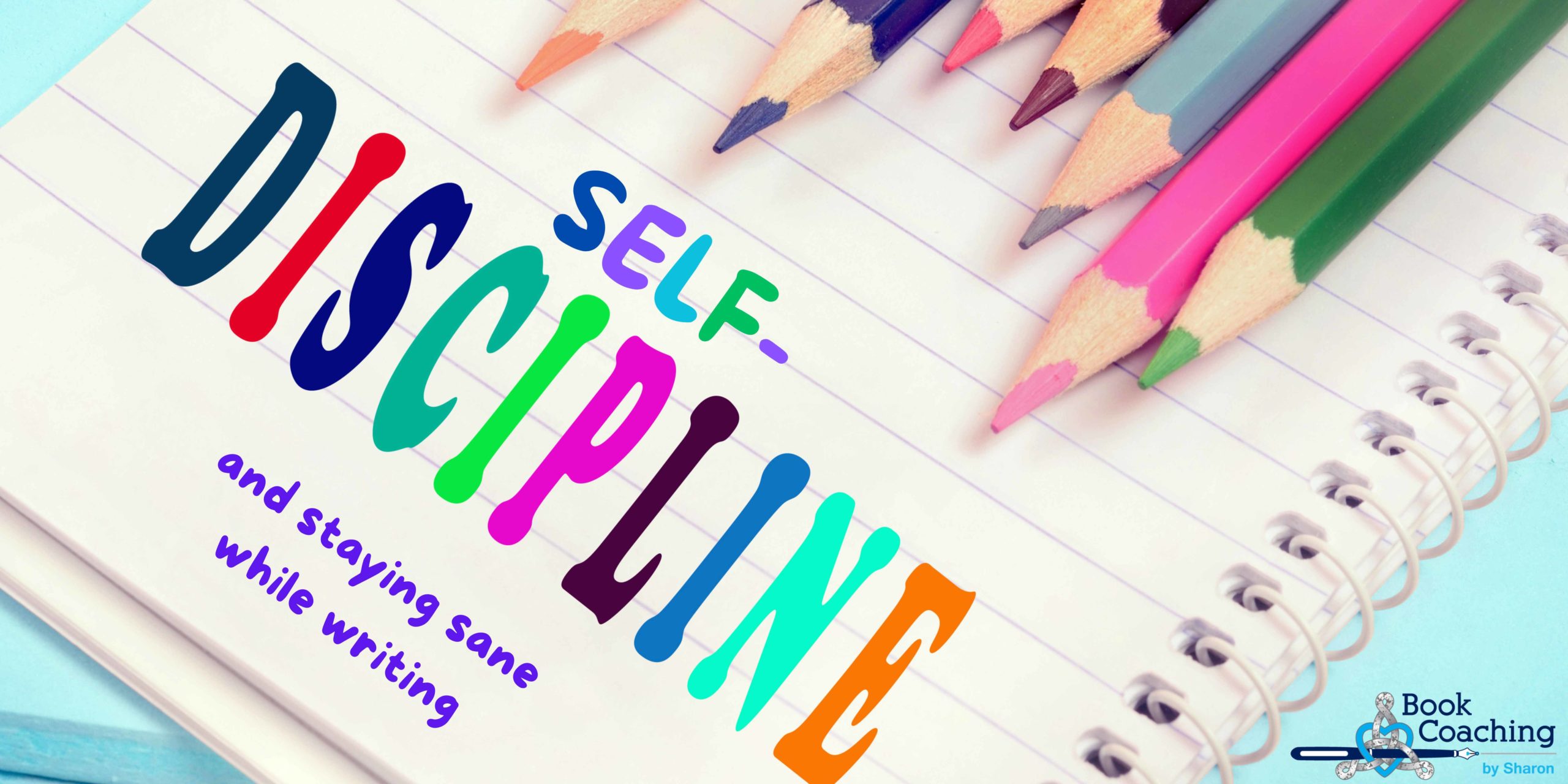SELF-DISCIPLINE
and staying sane while writing
I recently had the opportunity to speak to a group of individuals self-discipline. The talk I was asked to make was about my biggest challenge when it comes to self-discipline with a focus on how I have managed to continue writing and publishing consistently.
I had to think long and hard about it. There have been so many challenges over the years. What I came up with was not one but two key areas of opportunity that I’ve faced in my career and in life when it comes to being self-disciplined and that I found to be the most transformative in how I operate in the world.
ALL THE THINGS
The first of these is wanting to do all the things.
I have always wanted to be able to do all the things. And when I say all the things, I mean, I want to paint and draw and color and sew and weave and make jewelry and dance and sing and write and teach and travel and craft and garden and…and…and… I mean, the list is endless. Not only that, but, despite my introverted nature, I wanted to say yes, when people asked me to do things.
LEARNING TO SAY NO
However, Time is finite and so are energy and personal resources. One of the hardest things I had to learn is, when you say yes, to one thing you need to say no to something else, and no is a word that we don’t like to say. We don’t like to hear it, so we don’t like to say it.
Think about it. When you were a child and you reached for the hot stove you got yelled at, “No!” If you tried to climb somewhere where you shouldn’t you heard a solid, “No!” Or you want to put something in your mouth that you shouldn’t and got a resounding “No!”
As children, we are told no and over and over and over. It’s basically the first word we hear once we start moving through and manipulating our environment. It is one of the first words we learn, and we also learn that it’s not a good word because it is often said in a severe tone while denying us the thing we want in that moment. So, as we get older, no becomes a very difficult word for some of us to say to others.
However, learning to say no is a critical aspect of self-discipline. And I’m not just talking about saying no to someone else but also saying no to doing whatever it is you want to do at any given moment in lieu of something else. For example, saying no to starting one more hobby or craft project before you finish the last one. (Totally me.) Or even no to buying one more thing to put in your house. (Also me.)
But learning to say no, for me, has been a crucial component in being able to do the things that I do, and accomplish as much as I do. I say no to watching television lot of the time in order to write. I say no to taking up a new hobby (as much as I want to try out the new trendy craft) in order to ensure there’s enough time and energy to focus on my client work. I say no to certain book events and author appearances so I can fully show up to other book events and appearances.
No, seems like such a simple word, and yet it can be one of the most important words in our vocabulary.
METRICS OF SUCCESS
The other aspect of self-discipline that I spoke about was learning not to judge success by other people’s metrics.
It’s easy to get caught up in measuring our success by other people’s metrics. It’s terribly easy to think that if I’m doing local community theater and I’m not a star, I’m not a real actor. Or if my books are not New York Times, best sellers, no matter how many fans love my books and come and talk to me about them and get excited about seeing me at events and buy my books that I’m not a successful writer. That if I didn’t get the big advance, and the big marketing push behind my book that my book has less value than someone else’s book. And that simply not true.
My books and my stories, your books and stories, have as much value as anyone else’s. Especially to our readers.
Using other people’s metrics to determine what success looks like for us is a trap. There’s always going to be someone who makes more money or drives a prettier car or has better hair or sells more books or has a longer line of fans waiting to meet them. Always. And comparing ourselves to others isn’t healthy. To quote King Lear, “…that way madness lies; let me shun that…” -Shakespeare.
But learning to set our own metrics for success allows us to know what we want to accomplish in the world and focus on that. Setting our own metrics for success allows us to set the bar where we want it to be and strive to meet our own goals based on personal passions and desires, without external forces pressuring us to be something else, or do something else.
Setting our own metrics for success allows us to have satisfaction in meeting those goals. It helps us avoid allowing the accomplishments of others to cast shadows over our own accomplishments.
As Henry David Thoreau said, “If one advances confidently in the direction of his dreams, and endeavors to live the life which he has imagined, he will meet with a success unexpected in common hours.”
For me, saying no to things had to include saying no to judging my success by other people’s standards. Therefore, I have set my writing and coaching goals to meet my needs, to satisfy my passions, and to stay sane while doing it.
* * * To get content like this sent direct to your inbox, sign up for my monthly newsletter.
To get content like this sent direct to your inbox, sign up for my monthly newsletter.
Or follow me on Substack.
For more information on Book Coaching, check out my FAQ page.
If you’re interested in what I write, check out my Author site.
And if you write or want to write children’s books, give the Coaching KidLit podcast a listen.

